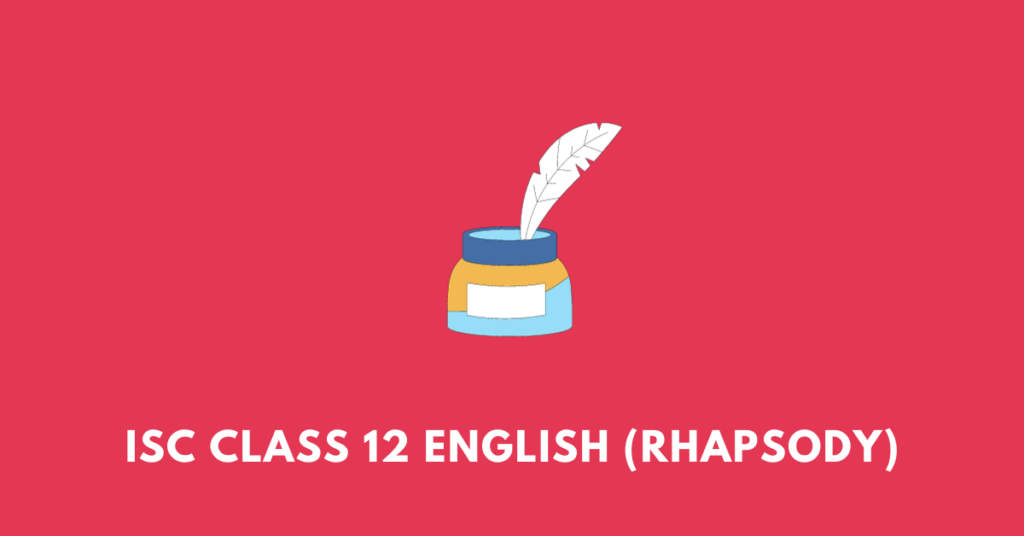Here, you will find summaries, questions, answers, solutions, line-by-line explanations, pdf, extras etc. of ISC Class 12 English (Rhapsody: ISC Collection of poems). These solutions, however, should be only treated as references and can be modified/changed. Please select the poem and proceed.
About ISC Class 12 English (Rhapsody) textbook
The ISC Class 12 textbook includes a rich selection of poems that explore diverse themes related to human experiences. Telephone Conversation by Wole Soyinka exposes racial discrimination through a dramatic monologue. The landlady’s hypocrisy is evident when her attitude changes upon learning the caller is African. Tithonus by Alfred Lord Tennyson reimagines the Greek myth of Tithonus and Eos to reflect on ageing and mortality. Tithonus longs for death to end his withered existence as an immortal without youth. Contrasting life’s cycles in nature with Tithonus’ unnatural state, Tennyson reflects on human finitude.
Shane Koyczan’s Beethoven uses vivid imagery and metaphor to explore the composer’s difficult life and his devotion to music despite isolation and disability. Though abused and unable to hear, Beethoven channelled his emotion into timeless works. Small Towns and the River by Mamang Dai paints a gloomy picture of small towns contrasted with the vital, eternal river. Mixing antithetical feelings about nature and human habitations, Dai implies towns decay while the river lives on.
John Donne’s Death Be Not Proud inverts the human fear of death through mocking, ironic conceits. Arguing that death is not all-powerful, Donne insists the soul lives on beyond bodily death. Together the poems offer rich insights into discrimination, mythic love, artistic struggle, nature’s spirituality, and the limitations of death. Ranging from dramatic monologues to metaphysical conceits, the poems explore timeless themes through skillful language and imagery.
Get notes of other classes and subjects
| NBSE | SEBA/AHSEC |
| NCERT | TBSE |
| WBBSE/WHCHSE | ICSE/ISC |
| BSEM/COHSEM | MBOSE |
| Share Feedback | Question Papers |

